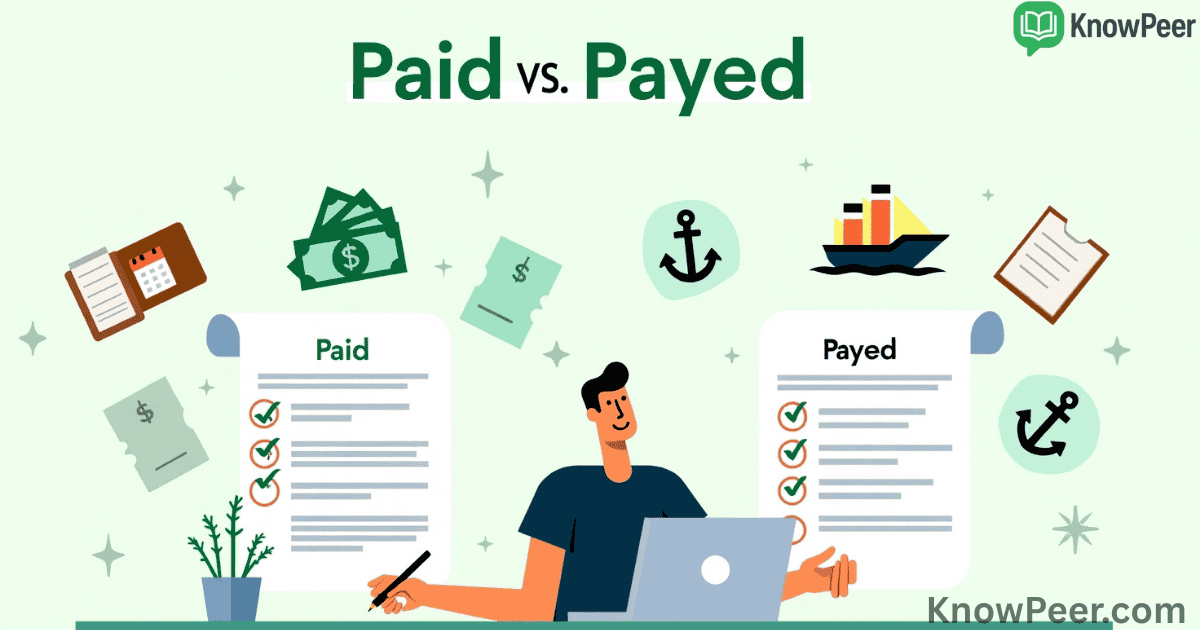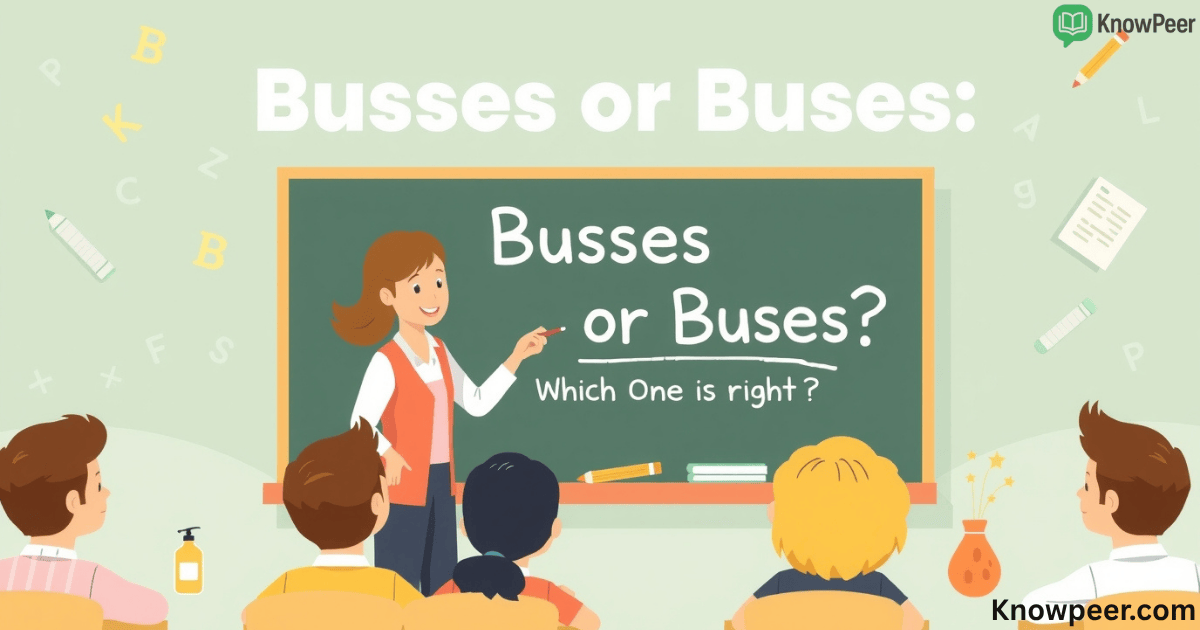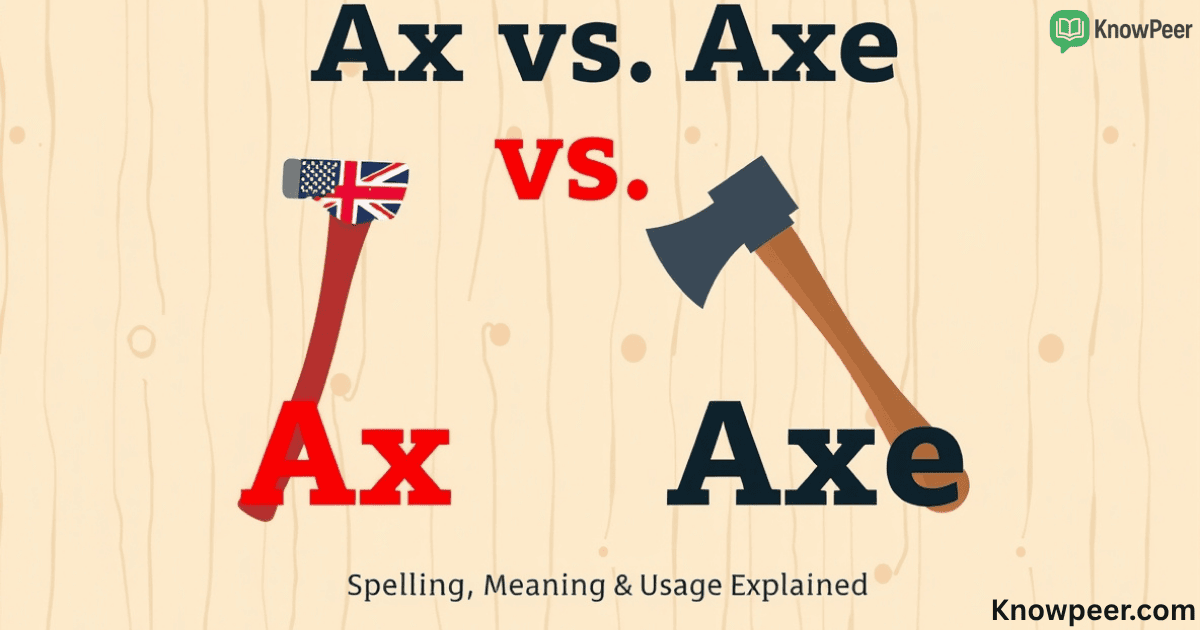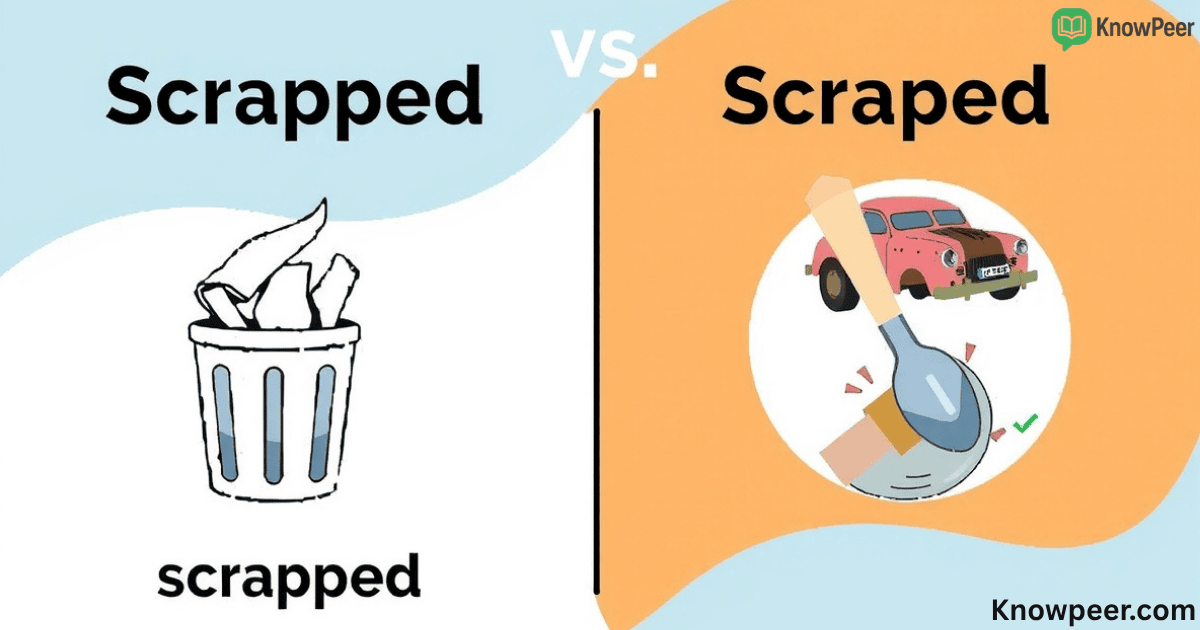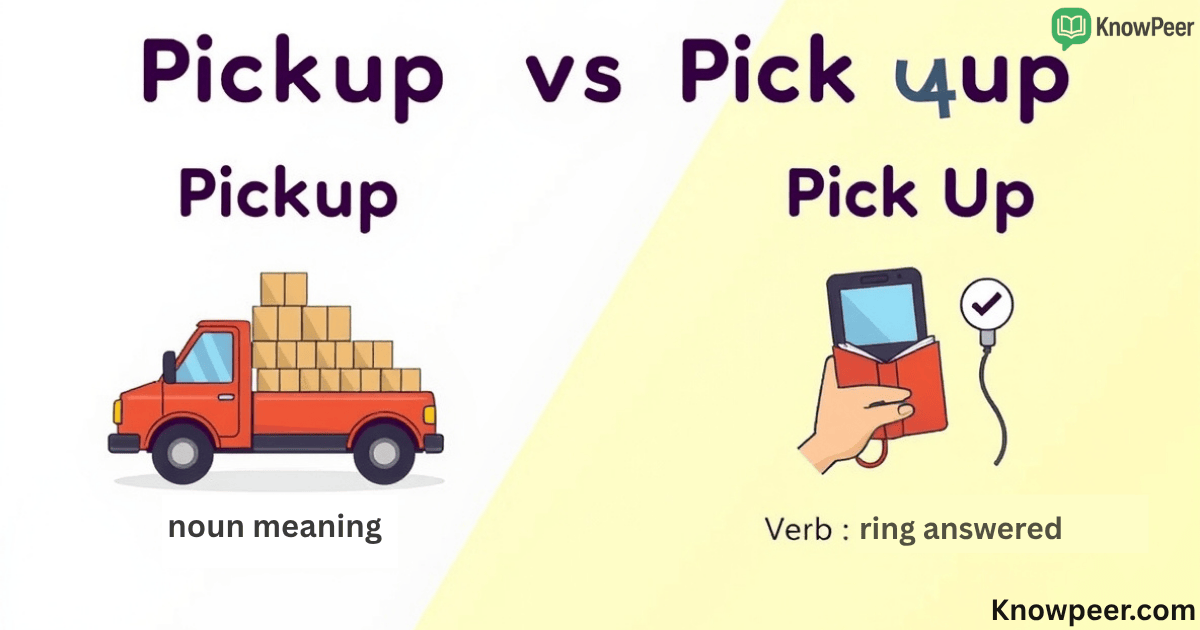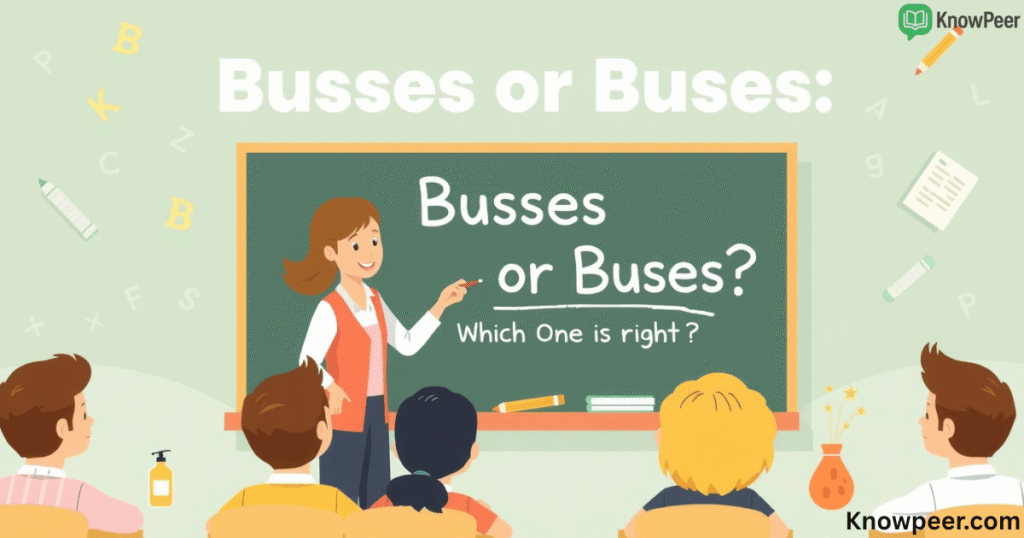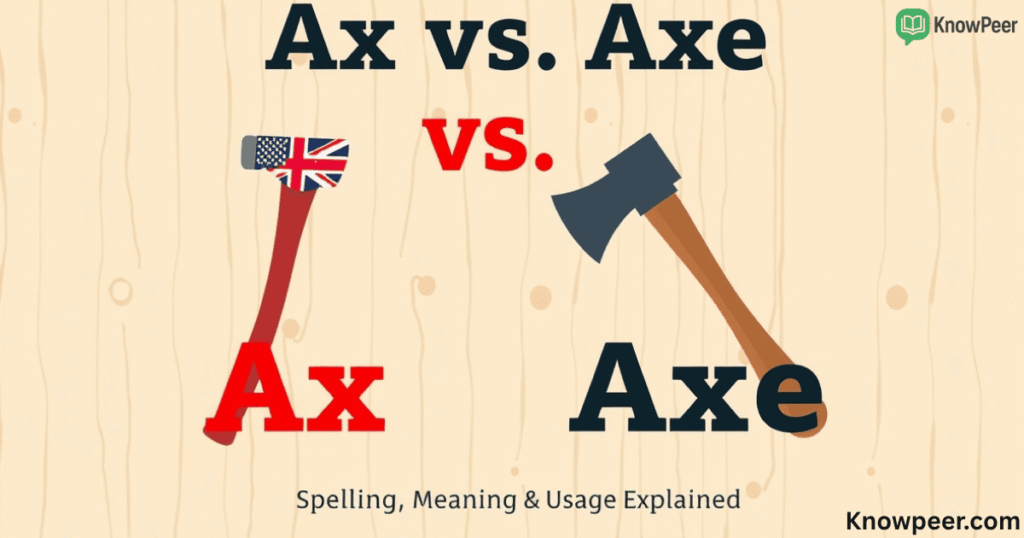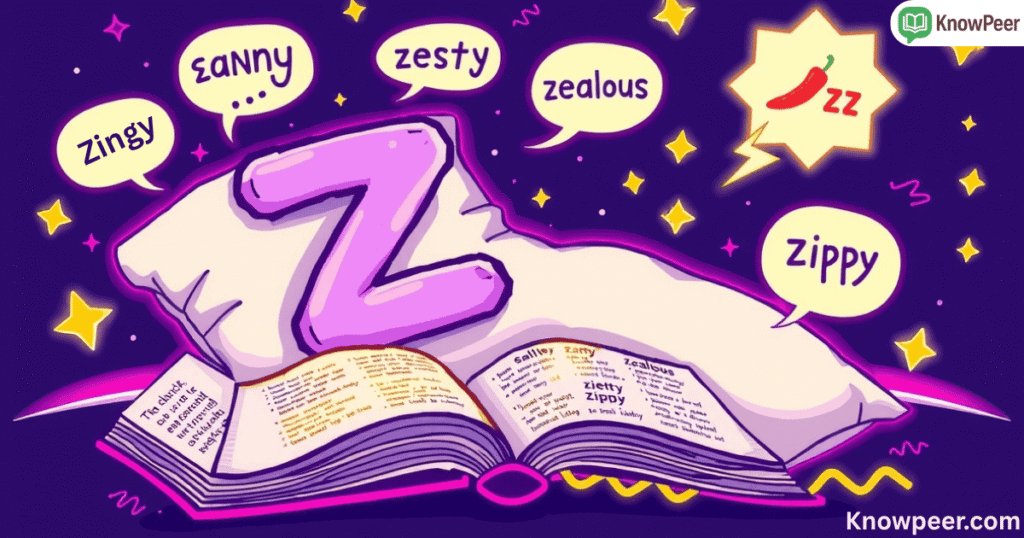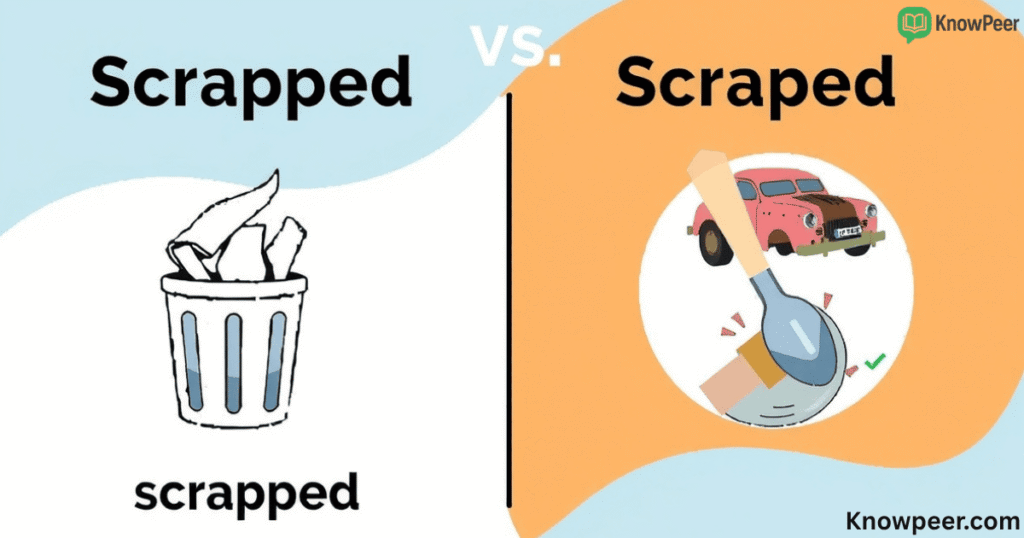Choosing between paid and payed might seem confusing, especially if you’ve seen both used in different places. They look almost the same, sound the same, and come from the same root verb—pay. But there’s a big difference in how they are used, and using the wrong one can affect your writing Paid vs Payed. Whether you’re writing an email, a report, or posting online, knowing the correct word will make your communication clear and professional. This article explains the real difference between “paid” and “payed”, and shows when to use each one correctly.
Many people believe that “payed” is just a misspelling of “paid,” but that’s not the full story. While “paid” is the correct form in most cases, “payed” also has a proper place in English—but only in very specific situations. This guide will help you understand these two forms, their history, usage, and why it matters. We’ll also include examples, LSI keywords, and easy memory tips to help you avoid mistakes.
What Does “Pay” Mean?
The word “pay” is one of the most commonly used verbs in English, yet it carries more meaning than most people realize. At its core, “pay” means to give someone money for something they’ve done or something you’ve received. For example, when you buy groceries or a service, you pay the person who provides it. But this word is far more flexible than just referring to money. It can also describe actions like giving attention, showing respect, or facing consequences. You might say, “She paid attention in class,” or “He paid the price for his mistake.” In each case, something valuable—like focus or effort—is being exchanged, not just cash.
“Pay” also has a noun form, which we hear in phrases like “equal pay,” “holiday pay,” or “back pay.” This shows its importance in discussions about work, fairness, and earnings. In more formal language, “pay” can relate to settling a debt or fulfilling an obligation. People may even use it in emotional or symbolic ways, such as “paying homage” or “paying a visit.” As you can see, this simple word travels across different meanings and emotional tones, from business transactions to expressions of respect. Understanding how “pay” works in multiple contexts is essential for using its past tense forms—“paid” and “payed”—correctly and effectively.
The Correct Past Tense: Why “Paid” Is the Standard
In almost every case, “paid” is the correct past tense and past participle of “pay.” This means when you are talking about money, time, attention, or respect already given, you should always use “paid.” For example, you would say, “I paid my rent yesterday,” or “She paid close attention to the speaker.”
Here is a quick reference table to help clarify:
| Present | Past Tense | Past Participle | Usage Example |
| Pay | Paid | Paid | I paid the bill. |
Because “paid” is used in all financial, social, and casual contexts, you’ll see it much more often. If you’re ever unsure, it’s safest to choose “paid.” This is the form that appears in formal writing, resumes, news articles, and everyday communication.
When “Payed” Is Correct: The Nautical Exception
The word “payed” is not a mistake, but it’s only correct in a very limited, nautical context. In sailing and ship maintenance, “payed” is used to describe applying something like tar or sealant to a deck or rope, or slackening a rope. For example, sailors might say, “They payed out the line slowly,” or “He payed** the seams with pitch.”
This form is very specific and not commonly used outside of maritime settings. In fact, many people have never heard it before unless they work on ships or read nautical literature. Here is a comparison for clarity:
| Verb Form | Context | Sentence Example |
| Paid | Money, attention, debt | She paid her dues. |
| Payed | Maritime, ropes, sealing | He payed out the cable. |
If you’re not talking about ropes, ships, or sealing something with tar, you probably mean “paid.”
The Etymology Behind Both Forms

The verb “pay” comes from the Latin word pacare, which means “to appease” or “to pacify.” Over time, it entered Old French as paier, and eventually became the English word we use today. This origin shows that the concept of “pay” was originally about settling or calming something, not just money.
Both “paid” and “payed” came from the same root, but their usage split. “Paid” became the regular form for all social and financial uses. Meanwhile, “payed” survived only in old maritime usage. Even though both are grammatically correct, their meanings are not interchangeable.
Grammar Rules You Should Actually Follow
According to top grammar authorities like Merriam-Webster, Oxford English Dictionary, and style guides like APA and Chicago Manual, “paid” is the correct choice in nearly every situation. Most grammar checkers, including Grammarly, will flag “payed” as a mistake unless it’s used in the correct context.
If you’re ever in doubt, the rule is simple: use “paid” unless you’re writing about ships, ropes, or tar. This advice works across American, British, and other forms of English. Here’s a look at common grammar rules for “pay”:
| Rule | Explanation |
| Use “paid” for all standard past tense uses of “pay” | Correct: I paid the bill. |
| Use “payed” only in nautical contexts | Correct: The sailor payed the seams with tar. |
Usage Trends and Misconceptions
When comparing “paid” vs “payed,” the usage trend is overwhelmingly in favor of “paid.” Modern tools like Google Ngram Viewer clearly show that “paid” has remained the dominant form for decades, while “payed” appears only rarely, and almost always in historical or nautical writing. This huge difference in usage leads many people to assume that “payed” is simply a misspelling—but that’s not true. It’s a real word with a very narrow purpose. However, the rarity of its correct context causes frequent misuse, especially online or in informal writing.
One of the biggest misconceptions is that “payed” can be used as a creative or old-fashioned form of “paid.” But doing so will only confuse readers or make your writing look incorrect. Many grammar tools, like Grammarly, will even flag “payed” as an error if it doesn’t appear in a nautical sentence Paid vs Payed. In emails, social media posts, or resumes, writing “payed” instead of “paid” can damage your credibility. People often don’t double-check because the two words sound the same, but smart writers always review their verbs Paid vs Payed. Understanding the usage trend and common misconceptions helps you make the right choice and avoid awkward or embarrassing mistakes.
Real-life Examples of “Paid” and “Payed” in Sentences
Understanding the difference is easier with clear examples. Here are some to help you remember when to use each:
| Correct Form | Example Sentence |
| Paid | I paid for dinner last night. |
| Paid | He paid no attention to the noise. |
| Payed | The crew payed out the anchor line. |
| Payed | She payed the ship’s deck with hot tar. |
These examples show how the meaning changes depending on the situation. If you’re talking about money or behavior, “paid” is your go-to word.
Phrases and Idioms with “Paid”
There are many common idioms and expressions that use “paid.” These phrases are well-known and used in everyday speech and writing. You never use “payed” in these cases. Here are a few popular ones:
| Idiom | Meaning |
| Paid off | To be successful or worthwhile |
| Paid the price | Suffer consequences |
| Get paid | Receive money for work |
| Paid attention | Focused or listened carefully |
These phrases help you communicate clearly and naturally. Using “payed” in any of them would be incorrect and confusing.
Mnemonic Tips to Remember the Difference
One way to avoid confusion is to use a mnemonic device. Think of it like this:
“Sailors payed the ropes, but you paid the bill.”
This trick helps you remember that “payed” is for ropes and sailing. If you’re not on a ship, “paid” is the word you need.
Another trick is to remember that “paid” is the only form that appears in common idioms. If you’re writing anything involving people, money, or daily actions, “paid” is always right.
Avoiding Common Mistakes in Writing
Using the wrong word can lead to embarrassing mistakes, especially in formal writing. Imagine writing on your resume, “I payed all vendor invoices on time.” That could make employers doubt your writing skills.
The same goes for social media, where people often post things like “I finally payed my rent!” While it might seem like a small error, these slips can hurt your credibility Paid vs Payed. Always double-check your past tense verbs when writing important texts, emails, or posts.
Related Words: Expanding Your Vocabulary

There are many other words related to “pay” that are helpful to know. Here’s a table to show how they are connected:
| Word | Meaning |
| Payment | The act of paying money |
| Payer | Someone who pays |
| Payee | The person who receives money |
| Repay | To pay back money owed |
These words often appear in financial writing, contracts, or business conversations. Knowing them improves your vocabulary and writing skills.
Language in Motion: Will “Payed” Evolve?
Some people wonder if “payed” might become more common in the future. After all, language changes all the time. New words appear, and old ones fade. Still, experts agree that “payed” is unlikely to replace “paid” in general use.
Because “paid” is so deeply rooted in grammar rules, dictionaries, and public usage, it will likely stay dominant. Even with autocorrect and changing communication styles, the word “payed” is expected to stay rare and technical.
Final Thoughts
To wrap things up, the key difference between paid and payed is simple. “Paid” is used for everything—money, attention, respect, and more. It’s the correct past tense of “pay” in nearly every situation. “Payed” is only used in nautical or maritime contexts and is rarely seen outside that field.
If you’re ever unsure, use “paid.” That choice is almost always right. Understanding the difference helps you write clearly and professionally, without mistakes that weaken your message.

